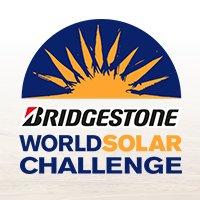The countdown to this year’s World Solar Challenge has officially begun. A record number of Australian teams have signed up to compete in the ‘world’s most exciting solar car event’.
The biennial Bridgestone World Solar Challenge begins October 13. South Australia’s Trade Minister, David Ridgeway, confirmed 53 entries from 24 countries have entered the race.
The solar car teams will drive from Darwin along the Stuart Highway to Port Augusta, then via Highway 1 to Adelaide.

Each car is allowed a nominal 5 kW of energy storage. Otherwise, they must rely on solar power and kinetic energy to traverse the 3,000 km desert journey.
In 2017, the BWSC celebrated its 30th anniversary. That year, elite Dutch team Nuon – now rebadged Vattenfall – took the chequered flag in the Challenger class, ahead of compatriots Team Twente.
It’s hoped an Australian entry will this year finally beat the dominant Dutch.
Three classes in the World Solar Challenge
The Challenger class is a single stage event. It features single-seat vehicles described as “aerodynamic masterpieces built for sustained endurance and total energy efficiency”.
The Dutch champions Vattenfall Solar have won the Challenger class in all but two events since 2001.
Australia’s best chance for line honours will come in the Cruiser class of the BWSC.
Five Australian universities have partnered to create the Australian Technology Network Solar Car Team. The team will unveil its new Cruiser class vehicle in Darwin. A three-stage event, the Cruiser class seeks to deliver a real-world, practical, solar electric car.
In 2017, the winner carried an average of three people over 3000 km using less than 46 kWh of electricity. This equates to a total energy cost of $4.70 per person over the journey.
World Solar Challenge chance to pitch smart grid tech
For the first time, competitors will also pitch innovative solar and smart grid technologies to a panel of international experts. These technologies will then inform future direction in the solar industry, and include:
- Solar output (such as smoothing variability of solar panel generation);
- Network load balancing (providing demand response and load shaping, important for grids where EV charging occurs);
- Optimisation of forecasting for solar storage and PV input.
Winning teams will pitch their ideas to a panel of judges in Adelaide on October 19.
Our professional solar installers in Melbourne will assess and determine your energy needs. We customise solar panel system in Melbourne to fit the roof size of your property, ensuring you receive the most suitable solar panel system for your Melbourne home, meeting to property’s energy requirements.












































